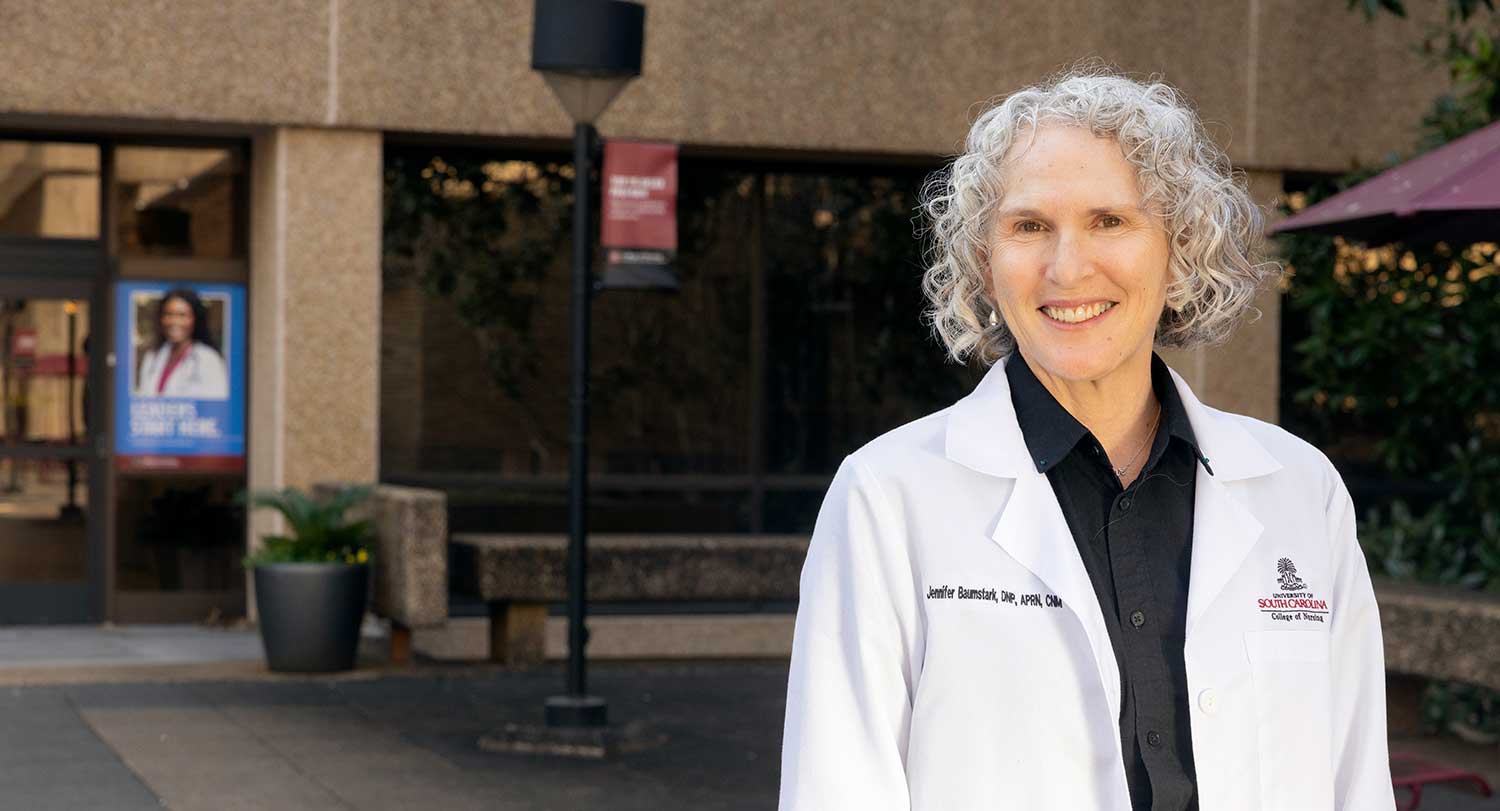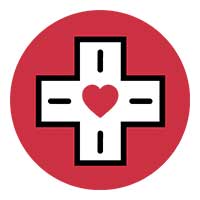
Jennifer Baumstark leads Nurse-Midwifery program, advancing maternal health in South Carolina
As the University of South Carolina’s College of Nursing launches an accredited nurse-midwifery program, Jennifer Baumstark steps in as its inaugural director, bringing decades of experience, a clear vision and a deep belief in empowering women.
“It’s exciting to think about adding to the midwifery workforce,” she says. “Creating a sustainable nurse-midwifery program is much needed.”
As Baumstark prepares to welcome this fall’s first cohort of students, she is focused on mentorship and change.
“USC graduates will understand the art of midwifery,” she says. “They’ll know how to care for, empower and advocate for women.”
According to Baumstark, many communities across the nation still misunderstand the role of midwives, often confusing midwives with doulas—who provide labor support but are not licensed health care providers.
“Nurse-midwives care for women from the very beginning of their pregnancy through prenatal care, assisting with their birth, postpartum care and discharging them from the hospital,” Baumstark notes.
Board-certified nurse-midwives are credentialed in all 50 states, all armed services and all U.S. territories and offer a full scope of women’s health and gynecologic care.
"We take care of women from adolescence through menopause, and can be found in hospitals, outpatient clinics, private practices and community birth centers," she says. “My experience has been working for places that understand midwifery and embrace it.”
A cross-country journey of care
A certified nurse-midwife since 2002, Baumstark's journey began with her own childbirth experiences in the early 1990s after graduating from nursing school.
“I went right into working as a labor and delivery nurse,” she says.
She gained experience as a certified nurse-midwife in both forward-thinking practices and high-volume hospitals in Illinois and Missouri. In search of a place where she could practice the midwifery model of care and make an immediate impact, she moved to Molokai, Hawaii in 2012.
There she was on call 24/7 at an 11-bed hospital with no operating room or labor and delivery nurses, managing care from pregnancy tests to birth.
“You can’t want to be awake for 24 hours at a time, ready for an emergency situation, without having the heart of a nurse-midwife,” she says.
After eight years of a round-the-clock call schedule, Baumstark began a transition to academia in 2019. She earned her Doctor of Nursing Practice from Hawaii Pacific University and eventually chaired its online graduate nursing program.
Improving maternal health in South Carolina
Now as a USC associate professor, Baumstark is working to grow the midwifery workforce in the Palmetto State.
This spring she stepped in as president of the South Carolina affiliate of the American College of Nurse-Midwives and is prepared to confront troubling statistics such as South Carolina being ranked eighth in the nation for maternal mortality rates.
"There is a tremendous need to add more nurse-midwives to the health care workforce in South Carolina,” Baumstark says.
South Carolina is getting a promising shift in that direction. In January it became one of 15 states to receive a $17 million Transforming Maternal Health grant from the Centers for Medicare and Medicaid Service.
"This grant will support relationship building and education to help address barriers that limit access to valuable resources, such as midwives," she says. "Other countries and several states in the U.S. have drastically improved maternal and neonatal outcomes by implementing the midwifery model of care.”
Teaching through empathy and experience
With the U.S. Bureau of Labor Statistics projecting a 40% increase in midwifery jobs over the next decade, she thinks it’s important for students to hear about and learn from experience.
“As an educator, I use a lot of narrative pedagogy and share my real life experiences,” she says.
She tells her students to never miss the power of a simple question.
“When you sit with a patient and say, ‘How are you?’—wait for her to answer. Look her in the eye. She might tell you ‘I am not okay, I need help.’ That’s the golden moment, in my mind.”
Making a connection, being present and developing trust is at the heart of nursing-midwifery.
“Midwives come to this profession from a nursing lens, and we are with women,” she says. “We trust women’s bodies. We advocate for them, we empower them. These are the core values of being a nurse-midwife.”

"Midwives come to this profession from a nursing lens, and we are with women. We trust women’s bodies. We advocate for them, we empower them. These are the core values of being a nurse-midwife."
